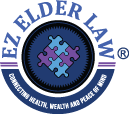
Nursing home residents have the right to make their own choices. This includes basic life choices, the right to information and to socialize, and rights concerning financial matters. Specifically, 42 C.F.R. § 483.10(f) provides that residents have the right to and the facility must promote and facilitate resident self-determination through support of resident choice, including […]



